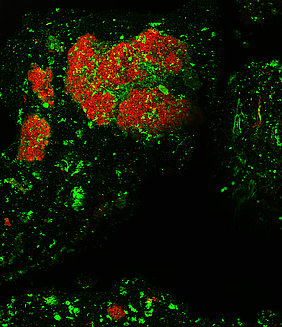Sometimes doing nothing is even worse. Our planet earth is facing numerous and huge man-maid problems, such climate change, global biodiversity loss and mass extinction. Even though harnessing of microbiome such as microbial transplantation may be risky, it provides us a huge chance to reverse deterioration of biodiversity and increase the resilience of wildlife and ecosystems. 25 scientists from 22 research institutions worldwide has joint their forces to develop and “propose a real-world application framework to guide environmental and wildlife probiotic applications”.
“This publication has the potential to set a milestone for successful microbiome management and for biotechnology!” LeibnizATB scientist and co-author Prof. Gabriele Berg says. Experts from all over the world now can openly access the full publication “Harnessing the microbiome to prevent global biodiversity loss” in the journal Nature Microbiology.
Microbiomes are complex systems of microbes that have a great impact on surrounding environment. The soil in which our food grows is affected as much as the plant that grows there and the human who consumes it and vice versa. Climate change, widespread use of pesticides and many more human interventions in the environment homogenized microbiome signature worldwide, disrupted microbial networks and functions and therefore impacted symbiotic relationships. For a responsible microbiome stewardship scientists, policy makers and practitioners need an evidence-based framework that consider “the dynamics of the expected benefits, current alternatives and unknown risks”.
The multidisciplinary authors of the publication “Harnessing the microbiome to prevent global biodiversity loss” in the first step summarized “the current concepts, bottlenecks and ethical aspects encompassing the careful and responsible management of ecosystem resources using the microbiome (termed microbiome stewardship) to rehabilitate organisms and ecosystem functions”. Based on this they proposed “a real-world application framework to guide environmental and wildlife probiotic applications. This framework details steps that must be taken in the upscaling process while weighing risks against the high toll of inaction.”
Full publication (open access)
Contact: Prof. Gabriele Berg

